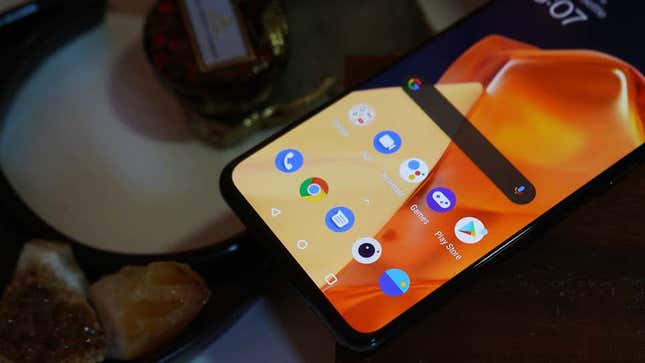
Once again, people are talking about how Apple won’t play nice with Android devices. This time Google Senior Vice President Hiroshi Lockheimer, who oversees Android, is taking Apple to task over the green bubble struggle and urging the company to embrace a new text messaging standard that will make cross-platform communication easier.
On Saturday, Lockheimer tweeted that Apple’s walled garden around iMessage is a “documented strategy,” adding that the company uses peer pressure and bullying to sell its products despite its marketing centered around “humanity and equity.”
Lockheimer specifically called out how Apple could support Rich Communication Services, or RCS, but choose not to. The messaging standard has effectively united all Android devices on one texting platform after a years-long crusade. The three major U.S. carriers all support RCS. It’s available by default through the Google Messages app, which comes standard on all Android devices—just like Apple Messages is standard is on all Apple devices. In fact, the last holdout to getting RCS standardized across mobile platforms is Apple.
Today Lockheimer denied that his tweets were a critique of Apple’s refusal to bring iMessage to Android. Instead, he wants Apple to support RCS in iMessage, just as the company supports older SMS/MMS standards. He even offered to help Apple implement RCS, doubling down on a plea made late last year.
Lockheimer insists that Apple adopting RCS would also help more folks connect.
“Phone number-based messaging is the fallback,” Lockheimer tweeted. “If you want to reach someone and you don’t know whether they use app x y or z, you have high confidence that sending them a text (SMS) will work.” It’s a standard that has long been supported by mobile devices, which Lockheimer suggests is “probably why Apple supported SMS to begin with.”
Lockheimer is right. Supporting RCS would improve the experience for both iOS and Android users. Speaking as a longtime Android user, it means I could have encrypted conversations with my loved ones who use iPhones without having to use a third-party app, and I could finally receive video clips as intended from my Apple-using friends.
But Google is also to blame for its disorganized messaging strategy over the years, which it still hasn’t figured out and whittled down. Google currently runs a handful of messaging services, including Google Messages, Google Chat/Hangouts (depending on if you flipped the switch or not), and Google Voice. There’s also messaging and chat functionality baked into other Google apps, including Google Photos and Google Maps Business Messages, letting you chat with restaurant and shop owners.
Lockheimer was on the money about one thing: Phone numbers are a universal way to discover if someone’s on a messaging platform. Apps like Signal, Telegram, and WhatsApp serve as second- and third-tier messaging platforms for the same people I communicate with through text messaging. And when Google Messages can’t perform a task—like a large video file or end-to-end encryption—because of platform differences, my loved ones and I default to one of the backups mentioned above.
I’m not holding out hope that Apple will adopt RCS, because the company is little incentive to—its customers don’t mind being locked in, as annoying as it might be for their Android friends.
Google would be better off making a universal messaging solution that unites them all—third-party and first-party—making it easier for its users to flip back and forth between conversations. We already heard of some of this universal usage coming to Chrome OS’s phone app later this year. Google could make Android better by simplifying its own messaging apps and enabling one-click access to every option so Apple’s decisions don’t matter.